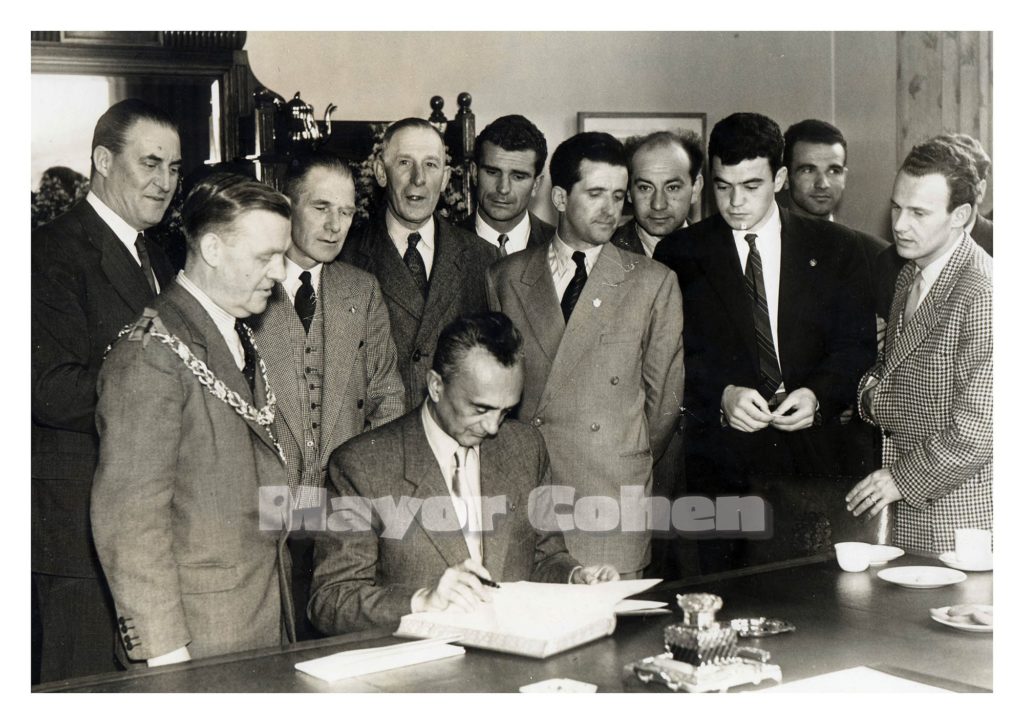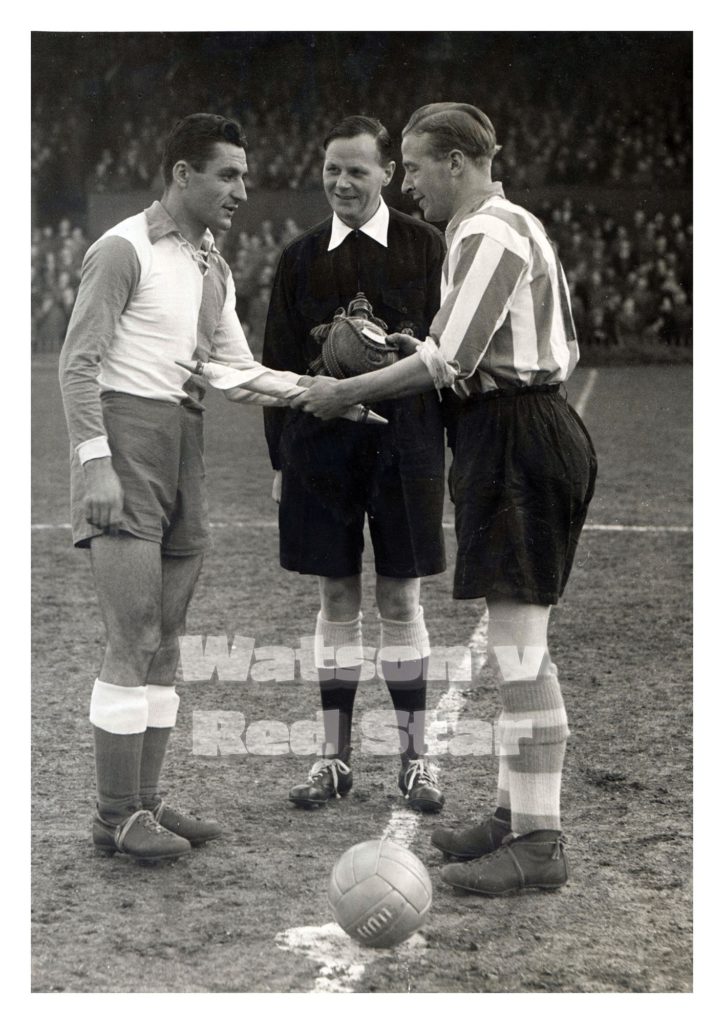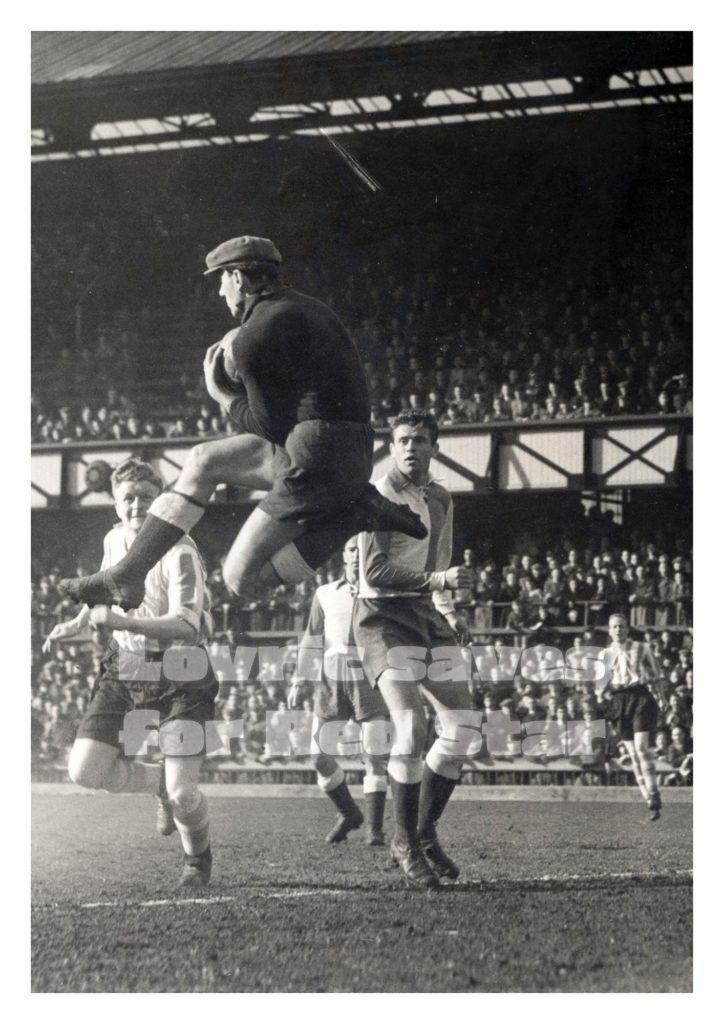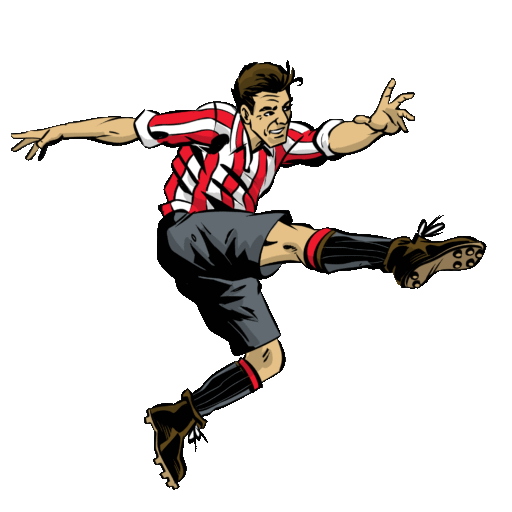
In 1951 towns and cities across Britain still bore the devastating scars of the Second World War which had ended only six years earlier. After more than a decade of rationing, austerity and making-do, gloomy post-war Britain needed a lift. The government’s antidote was ‘The Festival of Britain’, a national exhibition designed with the aim of promoting a feeling of recovery and demonstrating Britain’s contribution to civilisation past, present and future in the arts, science and technology and industrial design.
Opening in May 1951 and lasting until that September, the Festival was timed to coincide with the centenary of the Great Exhibition in 1851, but rather than being a world fair it focused entirely on Britain and its achievements and being a beacon for change. Funded mostly by the government with a budget of £12 million, Labour cabinet minister Herbert Morrison (MP for South Hackney and former leader of London County Council) was the chief organiser.
Although there is barely any mention of sport in the official festival report (written soon after the end of the festival) there was nevertheless a variety of matches and events played across the country as part of the festival. Some of these, such as cricket and woman’s netball were domestic affairs, focusing only upon England, Scotland, Wales, and Ireland, perhaps with some input from Australia. Other games, however, were more international. Women’s Hockey included several European nations outside of the Empire, while cycling events included seven other nations. Football included the local derby’s’ but also held English club matches against foreign clubs, as well as truly international matches. In the late 1940s England had time and again shown to be a lacklustre force in international football, largely because of its focus on playing European teams. However, the festival offered them an opportunity to put themselves against teams further afield. For example, 1951 saw the very first encounter between England and Argentina that England won 2-1. Scotland too played various matches and performed well.
Sunderland AFC participated in the Festival and arranged to play then Yugoslavia’s Red Star Belgrade on Wednesday 16 May 1951, 6.15pm kick off.
The appetite of the Sunderland fans for the game was heightened when the previous Saturday the crack Red Star side had played Manchester United at Old Trafford, a game that described Belgrade as “the greatest continental soccer side ever to visit the Lancashire venue”. Red Star had led from the 3rd minute and it was a penalty 8 minutes from time that saved The Red Devils from a defeat. Sunderland themselves had been ambassadors for English football one month earlier when they took on a Netherlands Select XI in Rotterdam, a game won by The Black Cats 2 v 1.

SUNDERLAND 1 v 0 RED STAR of BELGRADE
(Broadis – 34)
Roker Park, Sunderland, Wednesday 16 May 1951
Attendance 24,196
Sunderland AFC: Mapson, Hedley, Hudgell, McLain, Hall, Wright, Bingham, Broadis, Davis, Shackleton, Watson
Red Star Belgrade: Ljubomir Lovric, Branko Stankovic, Dimitrije Tadic, Bela Palfi, Milorad Diskic, Predrag Djajic, Tihomir Ognjanov, Rajko Mitic, Todor Zivanonic, Sinisa Zlatkovic, Prvoslav Mihajlovic
The Broadis goal in the 34th min that won for Sunderland the Festival of Britain game at Roker Park was just the sort of goal one could imagine the Yugoslavians scoring.
Throughout a game that kept a crowd of 24,196 thoroughly entertained the visitors tried to walk the ball into the net and took so long about it that the home defence had plenty of time to cover up and clear. When the Red Star forwards did try shooting their marksmanship was poor and the result was that Mapson had only three real shots to deal with.
In other respects the visitors were more than worthy opponents and in sheer football skill – passing and ball manipulation – they at least held their own. What beat them more than anything else apart from their own failure near goal was the keen tackling by the Sunderland defenders and the quick bursts through the middle by Broadis and Shackleton.
This latter tactic was something clearly unfamiliar to the Yugoslav defenders who were repeatedly caught napping by the policy of retreating before the man with the ball. Four times in the first half only fine saves by Lovic saved Red Star from paying the penalty for not meeting the man with the ball but the visiting goalkeeper had no chance with the shot that beat him in the 34th min.
Watson feinted to go through but instead switched the ball into the middle where Broadis controlled it in a flash and then sent a low drive into the net. Sunderland had the better of play in the first half but play was territorially even after change of ends. In the closing stages Red Star had enough chances to win but the finish was still poor and let them down.
Following this game Sunderland AFC’s European adventure continued with an end of season visit to Austria where the red and whites succumbed to three defeats at the hands of Rapid Vienna, Austria Vienna and a Graz XI.






